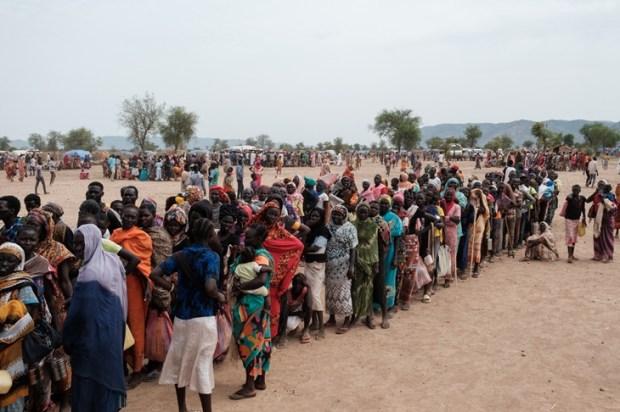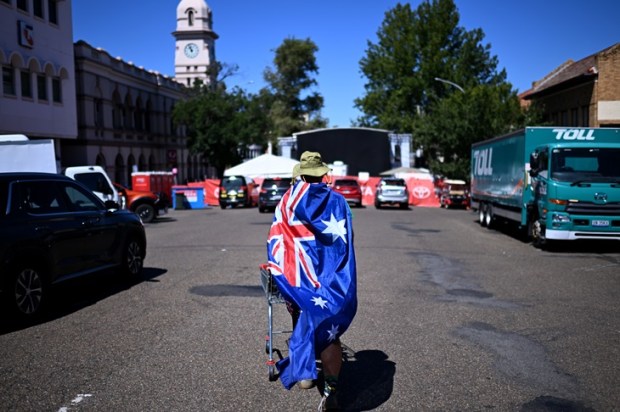The escalating conflict between Israel, Iran, and Iranian-backed militant groups like Hamas, Hezbollah, and the Houthis is not just another flare-up in a volatile region. It is a clash that will determine the balance of power in the Middle East and shape the political trajectory of the region for years to come. At stake is more than the immediate outcome of military engagements – it’s the broader regional stability, the future of democratic governance, and the very viability of an independent Palestinian state.
This war is not merely a localised battle between Israel and Hamas or Hezbollah. Instead, it is a proxy war between Israel and Iran, whose regime has systematically nurtured, funded, and armed these militant groups as part of a larger strategy to dominate the region and destabilise its neighbours. The world has a vested interest in ensuring that Israel emerges victorious in this war because the consequences of a loss would extend far beyond Israel’s borders. A victory against these proxies would not only strengthen Israel’s security but would also weaken Iran’s influence, ultimately creating an environment more conducive to peace and statehood for Palestinians.
Why Israel’s Victory Matters for Palestinians
Contrary to common perceptions, an Israeli victory against groups like Hamas is crucial for the prospects of a future Palestinian state. Hamas, which has ruled Gaza since 2007, has done more to harm the Palestinian cause than to advance it. Its reign of terror has ensured that any political discourse is dominated by the language of violence and extremism, leaving little room for moderate voices to emerge. By engaging in repeated conflicts with Israel, Hamas has not only inflicted immense suffering on its own people but has also thwarted any real possibility of Palestinian unity or progress towards statehood.
As long as Hamas remains a significant player in Palestinian politics, Israel will never feel secure enough to consider making territorial concessions on the West Bank. An empowered Hamas would likely replicate its strategy of rockets and tunnels, transforming the West Bank into a new front of hostility and chaos. Only when Hamas’s military capabilities are diminished and its political dominance is weakened can moderate Palestinian factions like the Palestinian Authority (PA) assert themselves and pursue meaningful negotiations with Israel.
A weakened Hamas would open the door for a more pragmatic Palestinian leadership – one that could engage with Israel on statehood and peace, rather than one that uses the promise of resistance to justify perpetual conflict. An Israeli victory over Hamas would signal a turning point, making it possible for Palestinians to pursue independence free from the influence of extremist factions.
Lebanon and Hezbollah: A Paralysed State Under Tehran’s Thumb
The fate of Lebanon, too, hangs in the balance. Hezbollah likes to portray itself as a Lebanese resistance force, but it is, in reality, an Iranian occupation force that has dragged Lebanon into multiple wars with Israel, undermining the country’s sovereignty and contributing to its economic collapse. Hezbollah’s actions have turned Lebanon into a battleground, using its own civilian population as human shields, and enmeshing the nation in Iran’s broader regional agenda. Most Lebanese, irrespective of sect or affiliation, are desperate to be free from Hezbollah’s grip. They understand that as long as Hezbollah remains the dominant force in the country, Lebanon’s prospects for peace, stability, and even basic governance will remain grim. But Hezbollah cannot be defeated by internal forces alone. A decisive Israeli victory against Hezbollah would weaken its ability to dominate Lebanon politically and militarily, thereby paving the way for a more independent Lebanese state. If the international community truly cares about Lebanon’s sovereignty and stability, it should support Israel’s efforts to neutralise Hezbollah’s threat.
The Global Stakes: A Struggle Between Democracies and Authoritarianism
This conflict is not just about Israel or Lebanon – it is about the broader battle between democracies and authoritarian regimes. Iran, through its proxy networks, has been waging war not just on Israel but on Western interests for decades. From the 1979 US embassy hostage crisis to the recent attacks on American forces in Iraq and Syria, Tehran’s regime has demonstrated its willingness to confront the West, either directly or through its proxies.
For the United States and its allies, an Israeli victory is not just a regional win but a strategic necessity. It would reaffirm American leadership in the Middle East, reassure anxious allies, and curb Tehran’s ambitions. If Iran’s proxies emerge stronger from this conflict, the ripple effects will be felt far beyond the Middle East. Authoritarian regimes in Moscow and Beijing, which have often collaborated with Tehran, would be emboldened, sensing an opportunity to expand their influence in an increasingly fractured international order.
The Future of Israeli Politics: Why Moderation Needs a Strong Israel
One might think that a prolonged conflict would only push Israeli politics further to the right. However, the opposite could be true. If Israel is able to secure a decisive victory against Hamas and its other enemies, the political calculus could change. Currently, hardliners in Israel gain traction by pointing to the constant threat posed by militant groups. If that threat is neutralised, space could open for more moderate voices to advocate for a two-state solution.
Should Israel agree to a ceasefire or peace talks without first weakening Hamas, the Israeli right-wing would claim it as a victory for extremism, and the country would likely see an even more hardline government come to power. But if Israel is able to decisively win, it could bolster the position of moderates who can argue for peace from a position of strength rather than weakness.
A New Middle East Coalition: Supporting Moderates Over Extremists
In recent years, a new coalition of moderate Arab states has begun to emerge, driven by shared concerns over Iran’s regional ambitions. The Abraham Accords, which normalised relations between Israel and several Arab nations, signalled a new era of cooperation. These agreements reflect a strategic realignment in the Middle East – one that prioritises stability and development over old hostilities.
However, this coalition is fragile. If Israel falters in its confrontation with Iran’s proxies, the moderate Arab states that have dared to step out of the anti-Israel consensus might reconsider their stance. A weakened Israel would make it harder for these states to maintain their normalisation efforts, pushing them back into the arms of a resurgent Iran. Conversely, an Israeli victory would reinforce this emerging coalition, encouraging more Arab states to join the circle of peace.
A Call to Support an Israeli Victory
Supporting an Israeli victory is not about choosing sides in a conflict, but about choosing stability, peace, and the prospects of a brighter future for the region. It is about recognising that the real enemies of peace are not the people of Gaza or Lebanon, but the extremist groups that oppress them and manipulate their suffering for political ends.
The world should hope for an Israeli victory not out of favouritism, but out of a desire to see a Middle East where nations can pursue their own destinies without being held hostage by militant groups that answer to Tehran. By rooting for an Israeli win, we are advocating for a future where Palestinians can pursue statehood without the shadow of Hamas, where Lebanese can reclaim their country from Hezbollah, and where the Middle East can finally experience a measure of the peace and stability it so desperately needs.

























